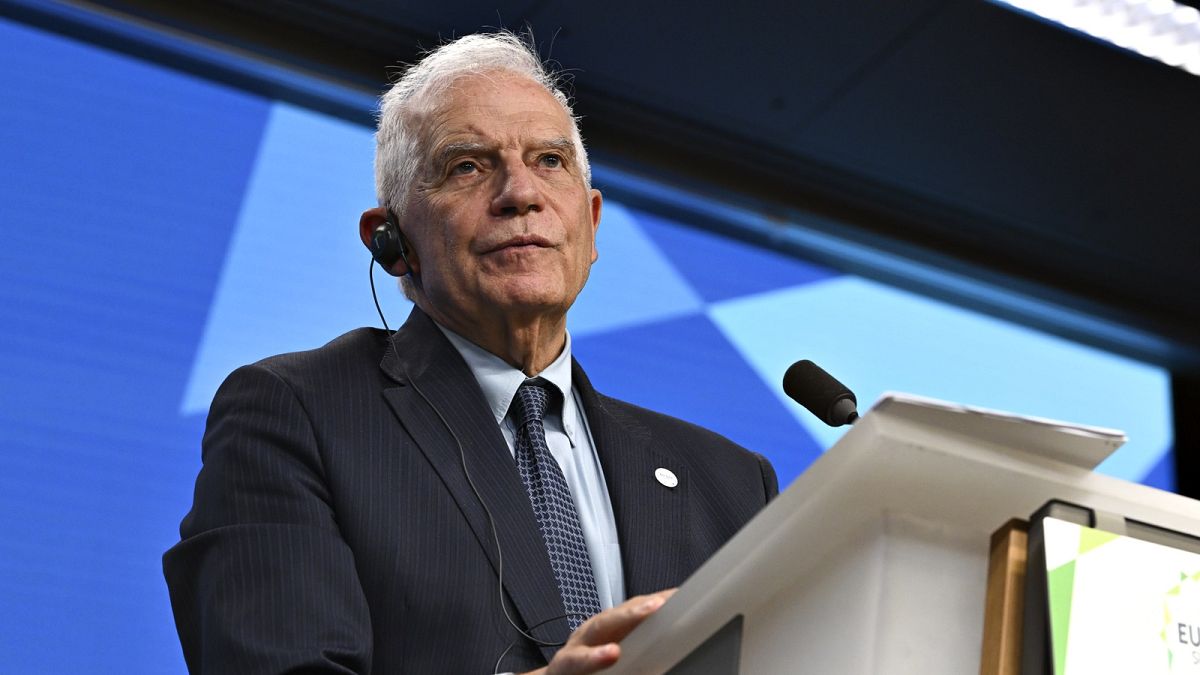Recent developments have seen Josep Borrell, the European Union’s foreign policy chief, propose to suspend political dialogue with Israel due to alleged human rights violations in the Gaza Strip. Borrell’s proposal is likely to face strong resistance from member states, with the majority expressing negative opinions during a recent meeting of ambassadors. Despite potential vetoes, Borrell’s objective may be to force capitals to clarify their stance on Israel’s actions. The proposal is rooted in the EU-Israel Association Agreement, with Spain and Ireland previously calling for a review in light of the humanitarian crisis caused by Israel’s military campaign in Gaza.
The proposal to suspend political dialogue with Israel comes as a response to the ongoing Israel-Hamas war, which has resulted in thousands of casualties on both sides. Israel has been criticized for impeding the delivery of humanitarian aid and obstructing the work of the UN relief agency for Palestinian refugees. Scott Anderson, director of UNRWA affairs in Gaza, has highlighted the lack of safe zones in the region, with hospitals and schools being targeted. The situation has prompted Borrell to take action, seeking to compel Israel to justify its actions and comply with the EU agreement on human rights.
The EU official behind the proposal, Josep Borrell, appears to be using the suspension of political dialogue as a means to signal discontent with Israel’s behavior. By invoking the legally binding provisions of the EU-Israel Association Agreement, Borrell aims to hold Israel accountable for its actions in Gaza. The proposal has ties back to earlier calls for a review of the agreement by Spain and Ireland, which were met with opposition from other EU member states that support Israel. Borrell’s initiative may ultimately serve as a litmus test for member states, forcing them to declare their position on the situation in Gaza.
The upcoming meeting of foreign affairs ministers in Brussels will be a crucial moment for Borrell’s proposal, as it will require unanimous agreement from member states to move forward. Given the divisions within the EU on the Israel-Hamas conflict, the proposal is expected to face significant pushback. Key allies of Israel within the bloc, such as Germany, Czechia, Austria, and Hungary, have previously resisted calls for a review of the EU-Israel Association Agreement. The outcome of the meeting will shed light on the EU’s position on human rights violations and international law in conflict zones like Gaza.
The conflict in Gaza has drawn international attention and condemnation, with calls for accountability and justice for the victims on both sides. The suspension of political dialogue with Israel represents a significant step by the EU to address the humanitarian crisis in the region. By invoking the provisions of the EU-Israel Association Agreement, Borrell is sending a strong message to Israel and member states about the importance of upholding human rights. The proposal may not only impact the relationship between the EU and Israel but also reveal the internal dynamics and divisions within the bloc on key foreign policy issues.
In conclusion, Josep Borrell’s proposal to suspend political dialogue with Israel over alleged human rights violations in Gaza marks a significant development in EU foreign policy. Despite potential vetoes from member states, the proposal reflects a broader concern within the EU about the situation in Gaza and the need for accountability. The outcome of the upcoming meeting of foreign affairs ministers will be a crucial test for the EU’s commitment to human rights and international law. Borrell’s initiative may also serve as a catalyst for deeper discussions within the bloc about its relationship with Israel and its role in promoting peace and stability in the Middle East. By taking a stand on the conflict in Gaza, the EU is signaling its commitment to upholding human rights and addressing humanitarian crises around the world.











